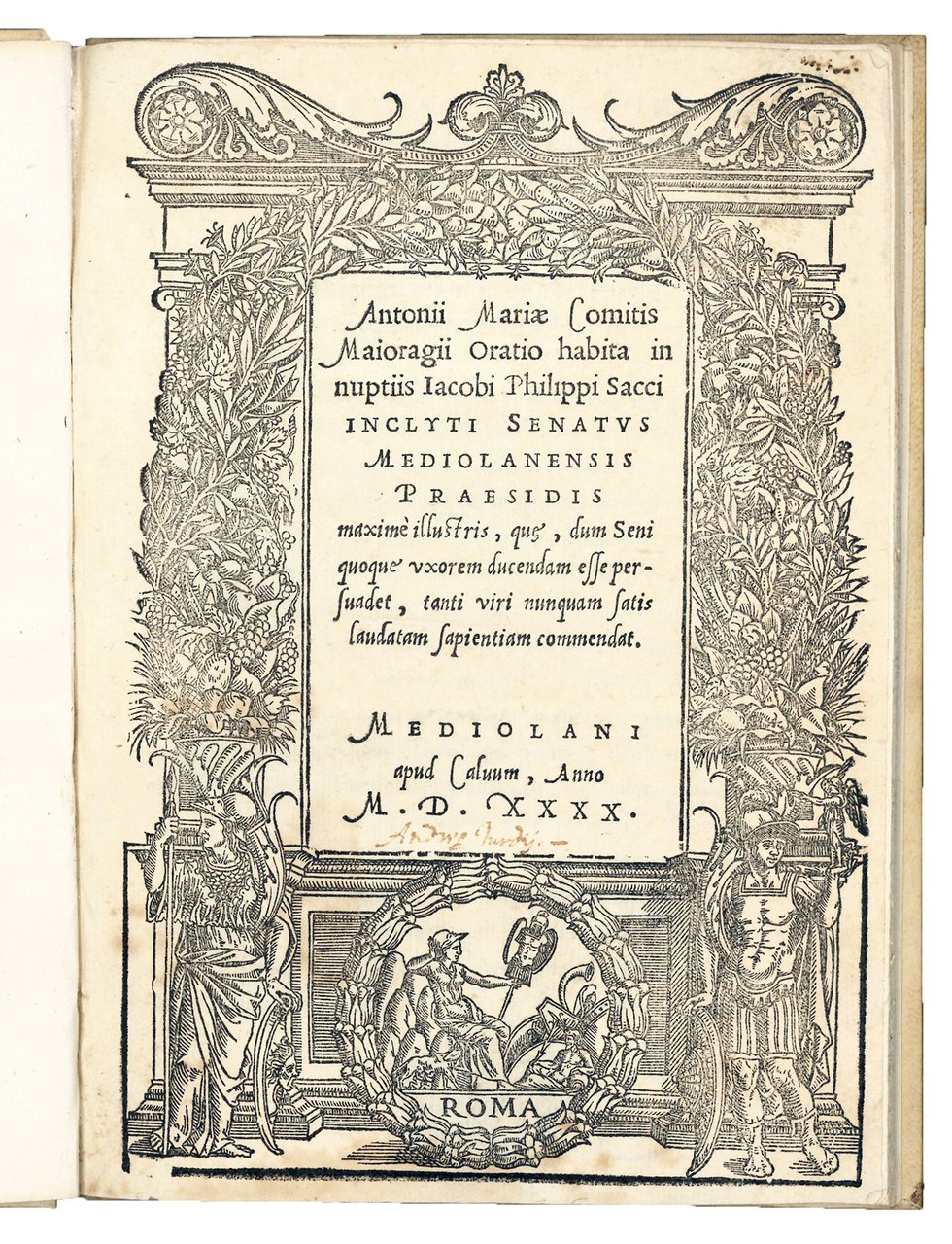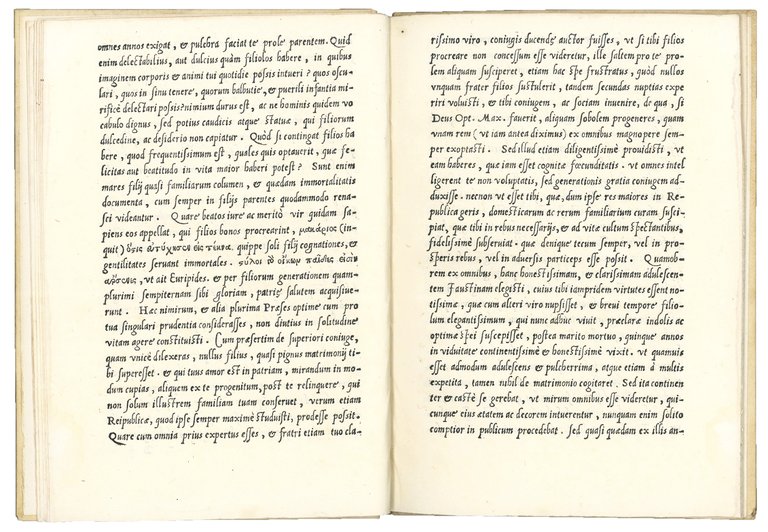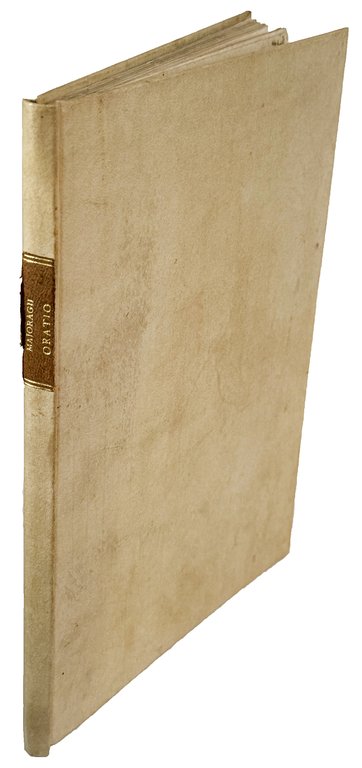Antonii Mariae Comitis Maioragii Oratio habita in nuptiis Iacobi Philippi Sacci inclyti Senatus Mediolanensis praesidis maximè illustris, quae, dum Seni quoque uxorem ducendam esse persuadet, tanti viri nunquam satis laudatam sapientiam commendat
Antonii Mariae Comitis Maioragii Oratio habita in nuptiis Iacobi Philippi Sacci inclyti Senatus Mediolanensis praesidis maximè illustris, quae, dum Seni quoque uxorem ducendam esse persuadet, tanti viri nunquam satis laudatam sapientiam commendat
Payment methods
- PayPal
- Credit card
- Bank transfer
- Pubblica amministrazione
- Carta del Docente
Details
- Year of publication
- 1540
- Place of printing
- Milano
- Author
- MAJORAGIO, Marco Antonio (1514-1555)
- Publishers
- Francesco Minizio Calvo
- Keyword
- Quattro-Cinquecento
- State of preservation
- Good
- Languages
- Italian
- Binding
- Hardcover
- Condition
- Used
Description
4to (199x140 mm). [22] leaves. Collation: A-D4 E6. Woodcut title-page border with Calvo's device at the bottom. Italic and Greek type. Modern stiff vellum, lettering piece on spine. Contemporary ownership entry on the title page “Andreae Turdij”, possibly identifiable with the Andrea Tordi from Casentino known in the second half of the 16th century as a Virgil annotator (cf. C. Kallendorf, Cristoforo Landino, Andrea Tordi, and the Reading Practices of Renaissance Humanism, in: “The Virgilian Tradition: Book History and the History of Reading in Early Modern Europe”, Aldershot, 2007). Two old stamps on l. A2r. Some marginal staining on the first quire. A good copy.
First edition. Giacomo Filippo Sacco was born in Alessandria on an unknown date and died in Milan in 1550. He was president of the Senate of Milan and a prominent figure in the Milanese government under the last Duke Sforza, Francesco II. At the latter's request, Sacco formed a commission of senators, magistrates, and jurists to select decrees issued by the Visconti and Sforza dukes and compile them with appropriate corrections and additions. This work was completed during the reign of Emperor Charles V, who had meanwhile succeeded the Sforza family in the Milanese domain. The Constitutiones dominii Mediolanensis, divided into five books, were published in 1541 and took effect on January 1 of the following year.
Already quite advanced in years, in 1540 Giacomo Filippo married Faustina Maggiolini, widow of Gian Francesco Stampa, Count of Rosate, who had died in 1534. By marrying Faustina, who had been widowed for five years before remarrying, Giacomo Filippo also adopted her son Giacomo Massimiliano. The couple had no children of their own.
In his lengthy oration, Majoragio praises Sacco for his political career and Faustina for her beauty and culture. He then justifies Sacco's late marriage with a profusion of classical quotations and examples, also in Greek.
Antonio Maria Conti took his name from the small town of Maioragio, near Milan, where he was born in 1514. He devoted himself to humanistic and legal studies, first at the school of Girolamo Cardano, then of Vincenzo Maggi and Andrea Alciati. In 1540, he obtained the chair of eloquence in Milan, where he remained, except for a brief period in Ferrara, until his death in 1555, promoting studies and the Accademia dei Trasformati. An enthusiastic supporter, then a detractor of Cicero in the Antiparadoxon libri VI (1546), Majoragio had a violent controversy with the Ciceronian M. Nizzoli (cf. R. Ricciardi, Conti, Antonio Maria, in: “Dizionario Biografico degli Italiani”, vol. 28, Rome, 1983, s.v.).
Edit 16, CNCE23588; USTC, 839694.



